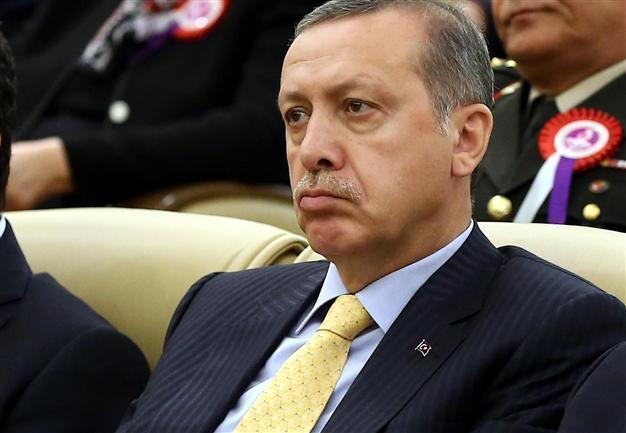Decoded: How Turkey’s top judge subtly targeted Prime Minister Erdoğan
Zeynep Gürcanlı ANKARA / Hürriyet

PM Erdoğan is pictured while listening to the Constitutional Court head, Haşim Kılıç. DHA Photo
Although Turkey’s top judge had said before his blistering speech on April 25 that he “would leave the challenging calls unanswered,” many of his words were apparently referring to Prime Minister Recep Tayyip Erdoğan’s previous statements.Here are some in comparison:
Changing shirts
* After forming the Justice and Development Party (AKP), Erdoğan had said he and his comrades “have removed the shirt of Milli Görüş,” referring to traditional political Islamist ideology in Turkey that they adhered to.
* “We don’t have a character that can keep changing shirts. In the same way that we stood by the citizens whose rights were violated yesterday, we will keep standing by them against anyone today,” Kılıç said on April 25.
Neighborhood pressure
* Erdoğan on October 29, 2010, called to abolish “what is called neighborhood pressure” in Turkey.
* “Efforts to influence judiciary members’ views, thoughts and decisions through neighborhood pressure is not valid for those who believe in the sanctity of justice,” Kılıç said on April 25.
‘Un-national’ rulings
* Erdoğan called the Constitutional Court’s Twitter ruling “un-national.”
* “Accusing the Constitutional Court of having political purposes or issuing ‘un-national verdicts’ is a shallow accusation,” Kılıç said on April 25.
Exhaustion of legal remedies
* Erdoğan had criticized the court for issuing rapid verdicts through individual applications without waiting for the complainants to exhaust all legal remedies in lower courts.
* “The European Court of Human Rights [ECHR] and Turkey’s Constitutional Court repeated in several rulings in the past that exhaustion of legal remedies is not an absolute necessity,” Kılıç said on April 25.
‘Parallel structure’
* Erdoğan said on April 11, in challenging the “parallel structure,” called it “the only remaining gang” within the state and urged the judiciary “to criticize and restructure itself.”
* “The judiciary has recently been confronted with a heavy accusation, being described as a ‘parallel state’ and a gang. It’s not possible for the judiciary to survive as long as this accusation is there,” Kılıç said on April 25.
Wave of appointments
* Erdoğan said after the massive graft investigations began December 17, 2013, that public servants “who did wrong will, of course, be appointed elsewhere.”
* Kılıç described the wave of appointments as “meaningless.”
The trap
* Erdoğan had repeatedly claimed that the graft investigations were “a trap against the national will.”
* “The judiciary is not and should not be a place for setting a trap for the people’s will” Kılıç said on April 25.
















